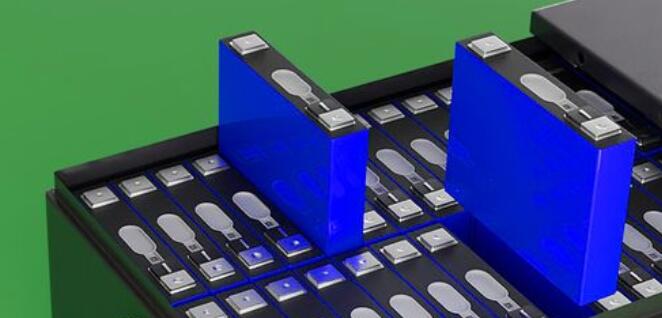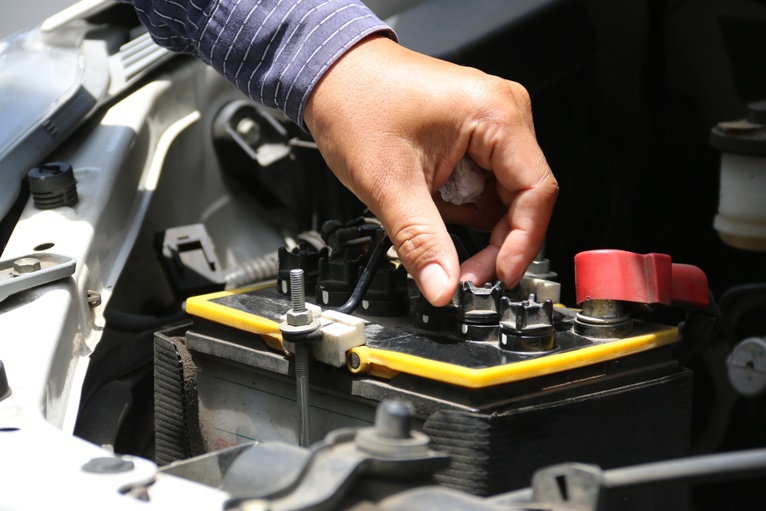Lithium Battery Production: A Symphony of Precision Engineering and Material Science
In the wave of energy technology, lithium batteries, with their high energy density, long cycle life and environmental protection characteristics, have become an important support for the development of modern science and technology. The production of lithium batteries is not only an in-depth dialogue between precision technology and material science, but also a vivid interpretation of the concept of green, efficient and sustainable development. This article will explore the secrets of lithium battery production in terms of material selection, production process, and quality control.

The Cornerstone of Materials Science
The performance of lithium batteries depends first and foremost on the selection of their constituent materials. Positive electrode materials, negative electrode materials, electrolytes and diaphragms are all carefully selected and strictly proportioned. In terms of positive electrode materials, ternary materials and lithium iron phosphate are the two main choices, each of which has different advantages in terms of energy density, safety performance and cost effectiveness. The negative electrode material is mainly graphite, but with the advancement of technology, silicon-based negative electrode materials have attracted much attention due to their high theoretical capacity. As a medium for ion transfer, the electrochemical stability, conductivity and thermal stability of the electrolyte are directly related to the performance and safety of the battery. In addition, as a physical barrier between the positive and negative electrodes, the quality and performance of the diaphragm cannot be ignored.
Precision Technology
The lithium battery manufacturing process is closely linked to a series of precision processes. Starting with the positive and negative electrode components, a complete battery is formed through coating, sheeting, winding or laminating, shelling, liquid injection, packaging and other steps. In this process, each step requires strict control of environmental parameters such as temperature, humidity and vacuum to ensure the stability of material performance and the reliability of battery quality. For example, during the coating process, it is necessary to accurately control the thickness and uniformity of the coating to prevent defects such as bubbles and cracks; during the winding or lamination process, it is necessary to ensure that the alignment and tension of the positive and negative electrodes and diaphragms are moderate to prevent short circuits and capacity loss.

Key to Quality Control
Quality control is a top priority in lithium battery manufacturing. From the arrival of raw materials at the factory to the delivery of finished products, each link must be rigorously inspected and tested. Through visual inspection, dimensional measurement, electrical performance testing and other means, problems in the production process can be detected and corrected in a timely manner to ensure that product quality meets standards. At the same time, establishing a sound quality management system and traceability mechanism is also an important measure to ensure product quality. By recording and analyzing production data, production processes and procedures can be continuously optimized to improve product stability and consistency.
In summary, the production of lithium batteries is a symphony of precision technology and material science. It embodies the wisdom and sweat of scientific and technological workers and demonstrates mankind’s unremitting pursuit of green, efficient and sustainable development. With the continuous advancement of technology and the continuous upgrading of the industry, we have reason to believe that lithium batteries will play a more important role in the future and contribute more to human scientific and technological progress and social development.
-
 Lithium Iron Phosphate (LiFePO4) motorcycle batteries are becoming increasingly popular due to their numerous advantages over traditional lead-acid batteries. LiFePO4 batteries are a type of lithium-ion battery that offer higher energy density, longer cycle life, and improved safety compared to lead-acid batteries. One of the main advantages of LiFePO4 motorcycle batteries is their higher energy density. This means that...Читать далее
Lithium Iron Phosphate (LiFePO4) motorcycle batteries are becoming increasingly popular due to their numerous advantages over traditional lead-acid batteries. LiFePO4 batteries are a type of lithium-ion battery that offer higher energy density, longer cycle life, and improved safety compared to lead-acid batteries. One of the main advantages of LiFePO4 motorcycle batteries is their higher energy density. This means that...Читать далее -
 When it comes to enjoying the open waters, nothing beats the thrill of cruising on a boat. Whether you're a leisurely weekend sailor or a passionate angler, having a reliable power source is essential for a successful and enjoyable experience. This is where marine batteries come into the picture. Marine batteries are specifically designed to meet the demands of...Читать далее
When it comes to enjoying the open waters, nothing beats the thrill of cruising on a boat. Whether you're a leisurely weekend sailor or a passionate angler, having a reliable power source is essential for a successful and enjoyable experience. This is where marine batteries come into the picture. Marine batteries are specifically designed to meet the demands of...Читать далее -
 The advancement of technology has always played a crucial role in military operations. From the invention of gunpowder to the development of nuclear weapons, every breakthrough has had a significant impact on warfare. In recent years, another technological innovation has emerged that is revolutionizing the power supply of military equipment - the lithium battery. Lithium batteries, also known as...Читать далее
The advancement of technology has always played a crucial role in military operations. From the invention of gunpowder to the development of nuclear weapons, every breakthrough has had a significant impact on warfare. In recent years, another technological innovation has emerged that is revolutionizing the power supply of military equipment - the lithium battery. Lithium batteries, also known as...Читать далее -
 Low-speed electric vehicles (LSEVs) are compact electric vehicles designed for short-distance travel at relatively low speeds. They are typically used in urban environments, industrial areas, and campuses for transportation purposes. LSEVs are known for their small size, low cost, and eco-friendly operation. Lithium batteries are commonly used in low-speed electric vehicles due to their high energy density, lightweight nature, and...Читать далее
Low-speed electric vehicles (LSEVs) are compact electric vehicles designed for short-distance travel at relatively low speeds. They are typically used in urban environments, industrial areas, and campuses for transportation purposes. LSEVs are known for their small size, low cost, and eco-friendly operation. Lithium batteries are commonly used in low-speed electric vehicles due to their high energy density, lightweight nature, and...Читать далее -
 As the core energy storage device of modern electric vehicles, lithium-ion automotive batteries play an important role in promoting the development of the new energy vehicle industry with their unique performance and advantages. So what is so unique about lithium-ion automotive batteries? The following is a detailed analysis from four aspects. 1. High energy density One of the most important...Читать далее
As the core energy storage device of modern electric vehicles, lithium-ion automotive batteries play an important role in promoting the development of the new energy vehicle industry with their unique performance and advantages. So what is so unique about lithium-ion automotive batteries? The following is a detailed analysis from four aspects. 1. High energy density One of the most important...Читать далее -
 Введение: В последние годы растет беспокойство по поводу экологической устойчивости и необходимости более эффективных энергетических решений в различных отраслях. Производство вилочных погрузчиков не является исключением, поскольку оно играет жизненно важную роль в погрузочно-разгрузочных работах. Традиционно вилочные погрузчики питаются от свинцово-кислотных аккумуляторов, которые имеют ряд ограничений. Однако с развитием технологий появление...Читать далее
Введение: В последние годы растет беспокойство по поводу экологической устойчивости и необходимости более эффективных энергетических решений в различных отраслях. Производство вилочных погрузчиков не является исключением, поскольку оно играет жизненно важную роль в погрузочно-разгрузочных работах. Традиционно вилочные погрузчики питаются от свинцово-кислотных аккумуляторов, которые имеют ряд ограничений. Однако с развитием технологий появление...Читать далее -
 В последние годы китайская индустрия аккумуляторов Lifepo4 быстро растет, что обусловлено растущим спросом на перезаряжаемые батареи с высокой плотностью энергии и длительным сроком службы. Батареи Lifepo4, которые представляют собой тип литий-ионных аккумуляторов, стали популярным выбором для приложений, требующих высокой производительности и надежности, таких как электромобили, системы возобновляемых источников энергии и портативная электроника. ...Читать далее
В последние годы китайская индустрия аккумуляторов Lifepo4 быстро растет, что обусловлено растущим спросом на перезаряжаемые батареи с высокой плотностью энергии и длительным сроком службы. Батареи Lifepo4, которые представляют собой тип литий-ионных аккумуляторов, стали популярным выбором для приложений, требующих высокой производительности и надежности, таких как электромобили, системы возобновляемых источников энергии и портативная электроника. ...Читать далее

